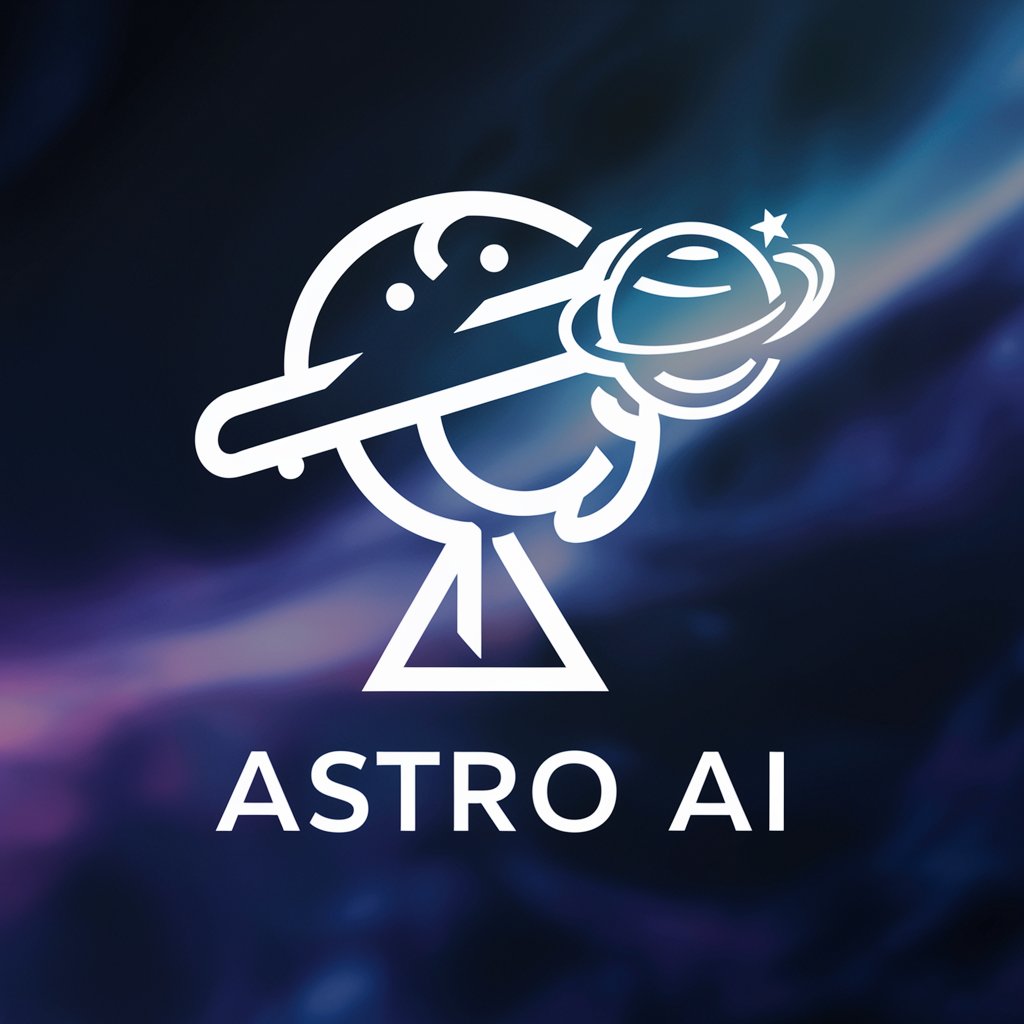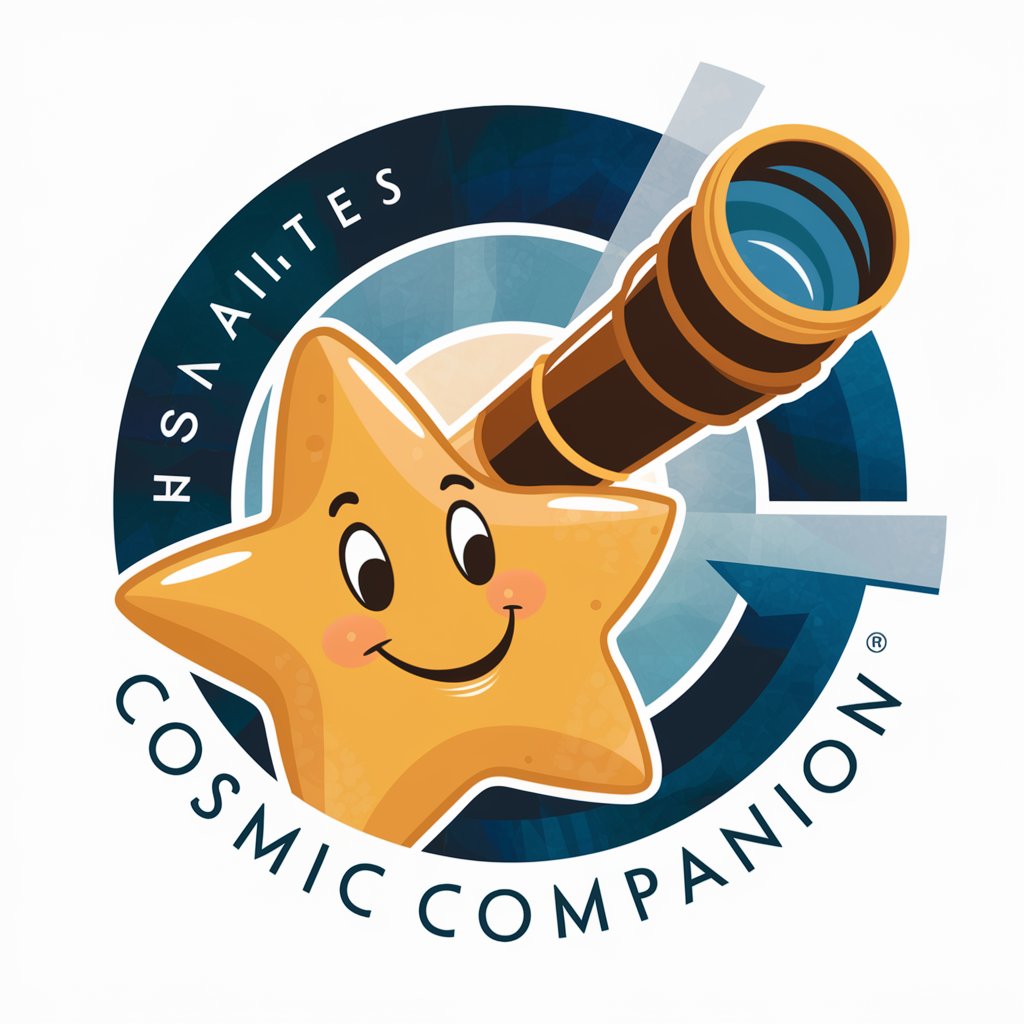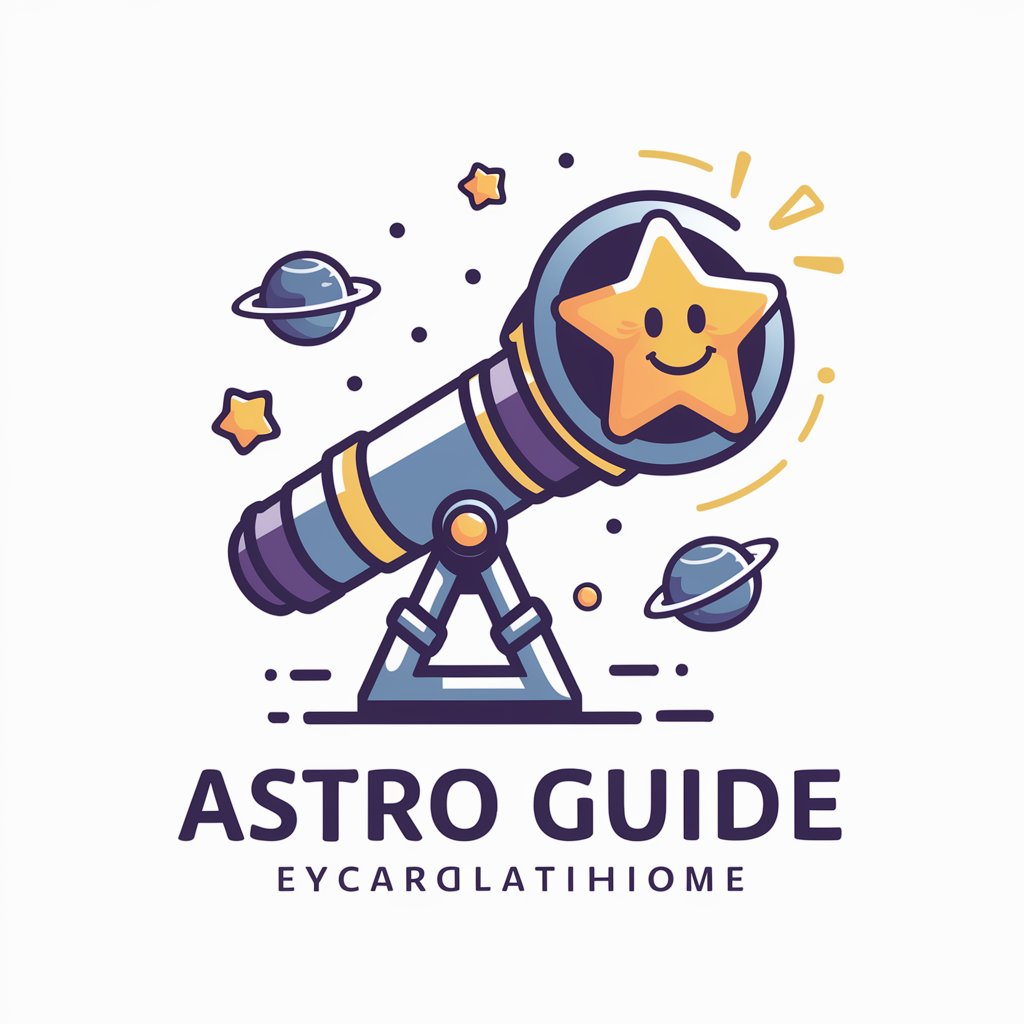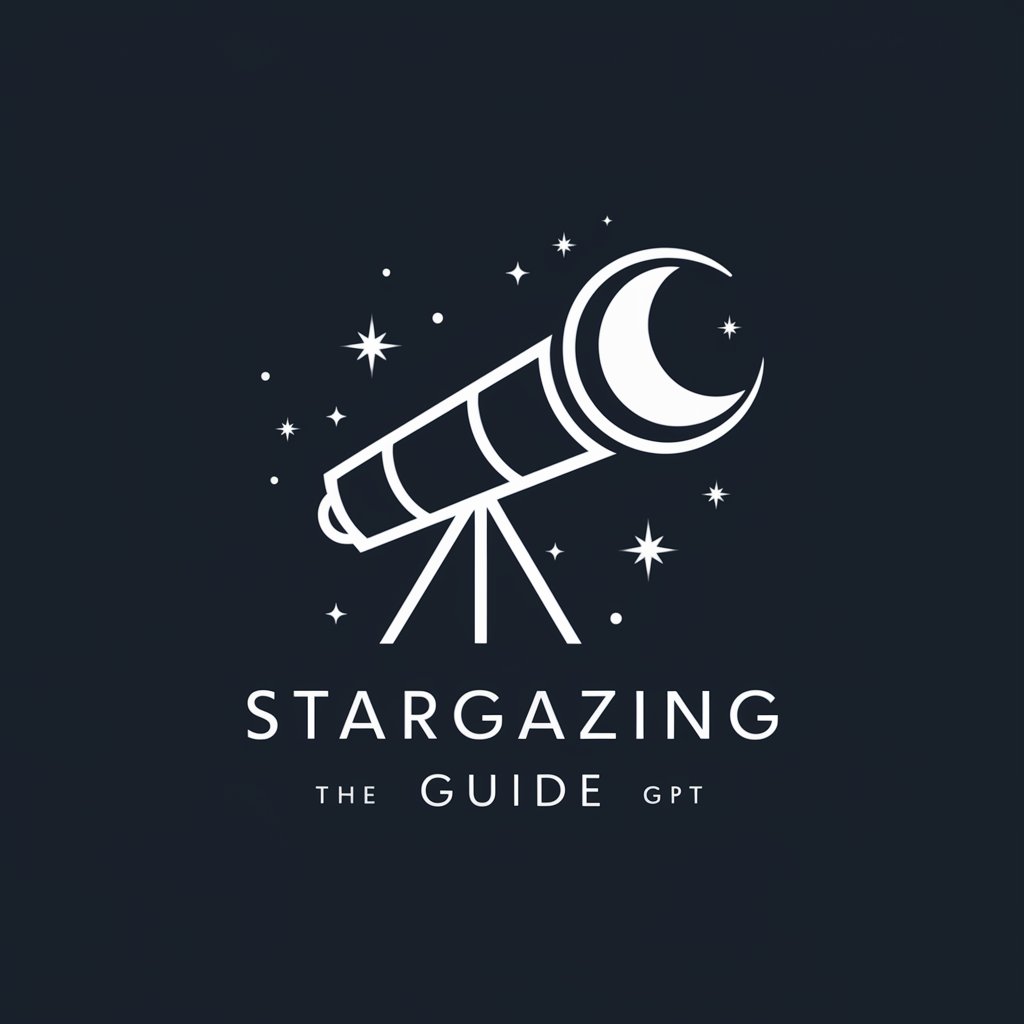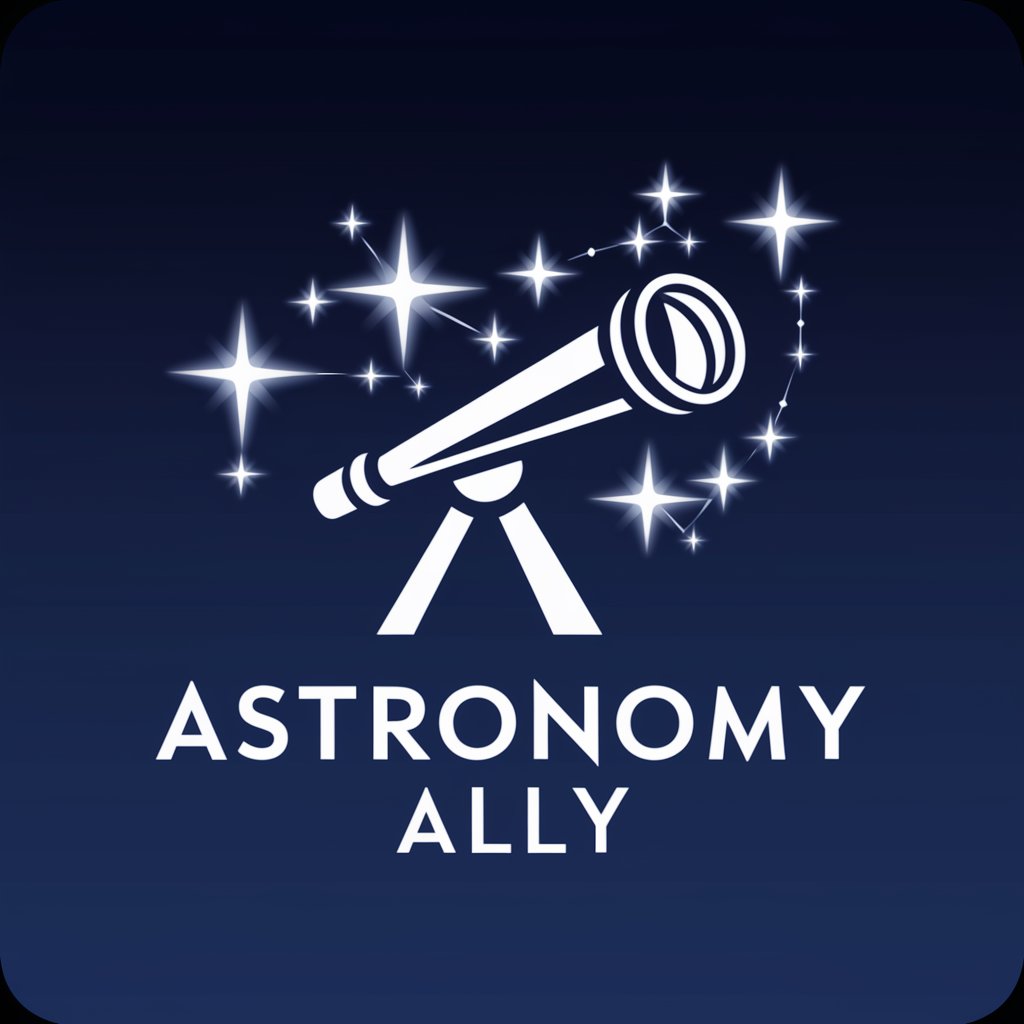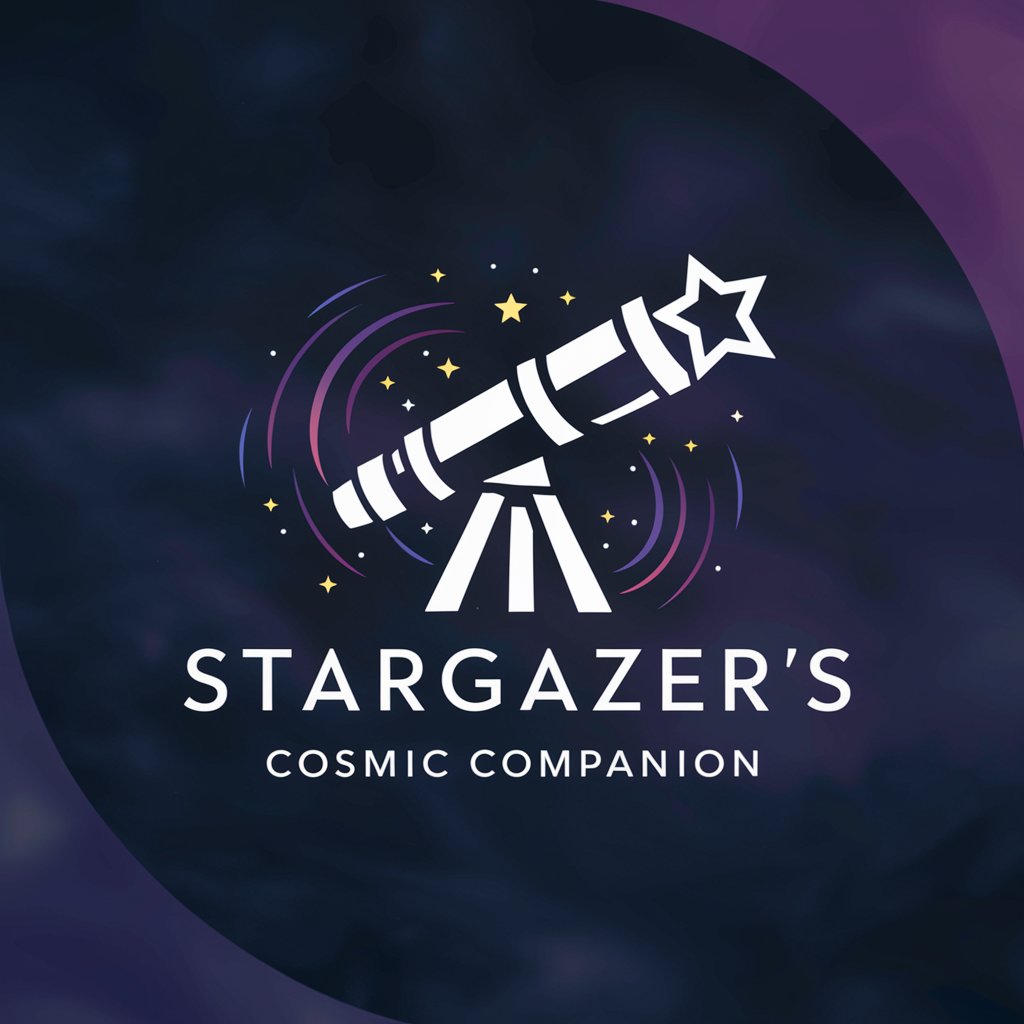
Astronomy Guide - Astronomy Insights & Tips
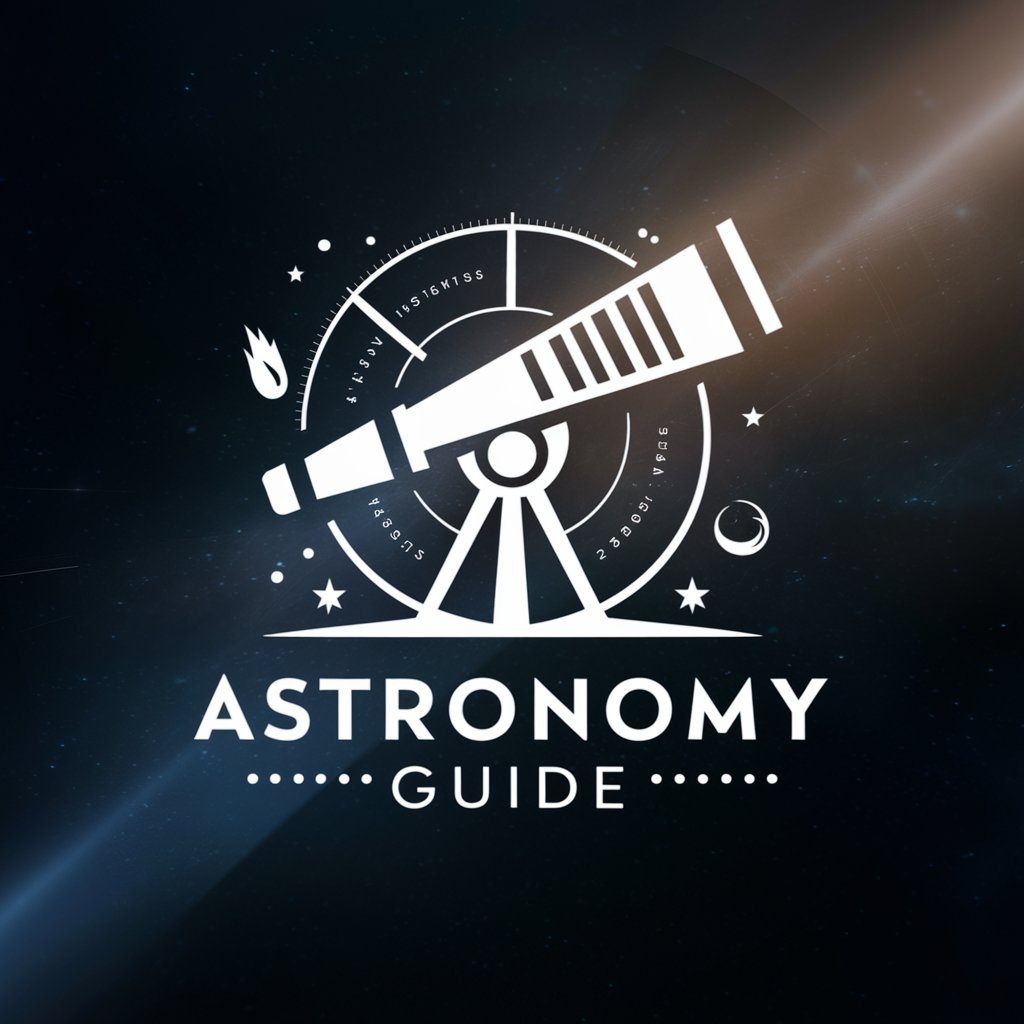
Hello! Ready to explore the cosmos together?
Guiding the Stars with AI
Can you explain how to set up a Dobsonian telescope?
What are the steps for polar alignment with an equatorial mount?
How can I find the Andromeda Galaxy with my telescope?
What maintenance tips do you have for a Schmidt-Cassegrain telescope?
Get Embed Code
Overview of Astronomy Guide
Astronomy Guide is designed to assist users with various aspects of astronomy, focusing particularly on stargazing and telescope usage. Its core purpose is to provide detailed guidance on selecting, setting up, and using different types of telescopes, ensuring users can effectively observe celestial objects. This guide emphasizes safety, particularly advising against the observation of the sun without proper equipment and techniques. It offers step-by-step instructions for telescope alignment, celestial object location, and maintenance advice, aiming to enhance the stargazing experience for both beginners and experienced enthusiasts. For example, it can walk a user through the process of polar alignment for an equatorial mount or suggest how to find the Andromeda Galaxy in the night sky. Powered by ChatGPT-4o。

Core Functions of Astronomy Guide
Telescope Assistance
Example
Providing steps for setting up a Dobsonian telescope for lunar observation.
Scenario
A beginner astronomer struggles to set up their new telescope and seeks Astronomy Guide's help to correctly assemble it, align it, and observe the moon.
Celestial Object Location
Example
Guiding a user to identify and observe the Orion Nebula.
Scenario
An amateur stargazer wishes to locate and view the Orion Nebula. Astronomy Guide offers detailed instructions on when and where to look in the night sky, considering the user's location and time of year.
Safe Observation Practices
Example
Advising on the correct use of solar filters for viewing solar phenomena.
Scenario
During a solar eclipse, a user inquires about how to safely observe the event. Astronomy Guide provides crucial safety information on the appropriate filters and techniques to prevent eye damage.
Target User Groups for Astronomy Guide
Astronomy Beginners
Individuals new to astronomy who require step-by-step guidance in using telescopes, identifying celestial objects, and understanding astronomical events. Astronomy Guide demystifies complex concepts and provides easy-to-follow instructions, enhancing their learning experience and fostering a deeper interest in the field.
Educational Institutions
Schools and universities that offer astronomy courses can utilize Astronomy Guide as a supplementary tool to reinforce practical telescope skills and observational techniques, making theoretical knowledge more tangible and engaging for students.
Amateur Astronomers
Hobbyists with some experience in stargazing who seek to refine their skills or expand their knowledge of celestial events and objects. Astronomy Guide offers advanced tips and nuanced guidance to help these enthusiasts explore the night sky more deeply.

How to Use Astronomy Guide
Initiate Your Journey
Start by visiting yeschat.ai to access Astronomy Guide for a free trial, no login or ChatGPT Plus subscription required.
Define Your Interest
Identify your specific astronomy interest or question, whether it's about telescopes, celestial objects, or stargazing techniques.
Ask Your Question
Pose your question clearly and concisely to ensure the most accurate and helpful response from the Astronomy Guide.
Utilize Provided Information
Apply the detailed guidance and instructions provided to enhance your astronomy knowledge or solve your query.
Explore Further
Use the comprehensive answers as a springboard to further explore the vast universe of astronomy through observation and study.
Try other advanced and practical GPTs
Chemistry Solver
Solving Chemistry with AI

Calculus Solver
Solve calculus effortlessly with AI

Statics Solver
Simplifying Statics with AI

AI and Wildlife Conservation GPT
Empowering Conservation with AI

AI and Oceanography GPT
Navigating Oceanography with AI

Easy Wealth Advisor
Maximizing Wealth with AI-Powered Advice

Pawfect Match
Find your pawfect dog companion with AI

Python Mentor
AI-powered Python learning made easy.

Visionary Coder
Empowering visionaries with AI-powered model analysis

Oddball 8-Ball
Your AI-powered oracle for everyday queries.

Poetry Club
Empower your poetry with AI.

Biblical Scholar
Unraveling Biblical Texts with AI
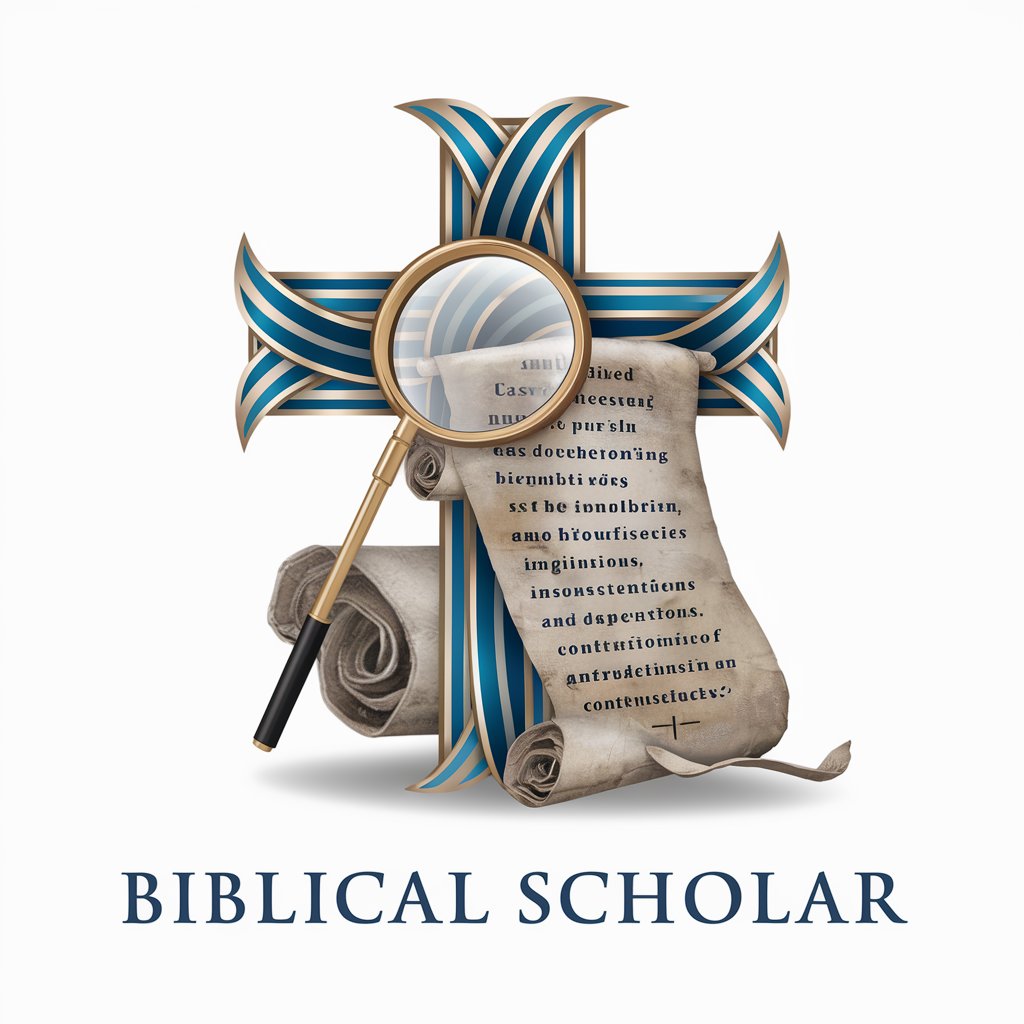
Frequently Asked Questions About Astronomy Guide
What types of telescopes can Astronomy Guide advise on?
Astronomy Guide offers expert advice on a wide range of telescopes, including refractors, reflectors, and compound telescopes, along with tips on their setup, use, and maintenance.
Can Astronomy Guide help me find celestial objects?
Yes, it provides detailed guidance on locating and observing celestial objects, including planets, stars, galaxies, and nebulae, tailored to your equipment and viewing conditions.
Is Astronomy Guide suitable for beginners?
Absolutely, it is designed to be accessible and informative for beginners, breaking down complex astronomy concepts into easy-to-understand explanations.
Can I get advice on observing the sun safely?
Astronomy Guide strongly advises against directly observing the sun without proper solar filters and equipment due to the risk of severe eye damage and provides safety guidelines for solar observation.
Does Astronomy Guide provide polar alignment instructions?
Yes, it offers step-by-step instructions on polar alignment for telescopes with equatorial mounts, essential for accurate tracking of celestial objects.
